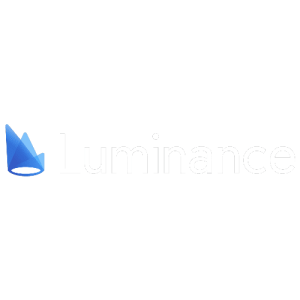Europe's Event for Legal Transformation
InterContinental O2 - London | 17-18 June 2026
5,500+ Attendees | 400+ Speakers | 20,000+ Meetings | 99.4% Recommend
5,500+ Attendees | 400+ Speakers
| 20,000+ Meetings | 99.4% Recommend
Who Attends
Law firm leaders
In-house / Corporate leaders
Solution providers, Gov, Investors
LegalTech / Startups
Media/ other
About
Legal is changing rapidly. Are you keeping up?
Legal professionals who want to be successful need to stay up-to-date on the latest trends and technologies. LegalTechTalk is the place to learn about the latest innovations in legal technology and how you can use them to improve your practice.

The Voices of LegalTechTalk 2026
In 2026, LegalTechTalk will feature 400+ speakers taking the mic across eight stages - delivering bold ideas, game-changing insights, and strategies shaping the future of law

Mollie Stoker
Group General Counsel & Company Secretary
OCADO

Mark Wasserman
CEO Emeritus
EVERSHEDS SUTHERLAND

Andrea Harris
Group Chief Counsel
WPP

Paul Stewart
Managing Partner
WOMBLE BOND DICKINSON

Christina Demetriades
Group Operating Officer, Accenture Legal
ACCENTURE

Sapan Gupta
Group General Counsel
ARCELORMITTAL GROUP

Vincent Pickering
General Counsel & Company Secretary
BOLT

Kate Heinzelman
Former General Counsel
CIA
Former Chief Counsellor to the Attorney General

Ron Klain
Chief Legal Officer
AIRBNB

Eleanor Lightbody
CEO
LUMINANCE

Tom Hambrett
Chief Legal Officer, General Counsel
REVOLUT

Komal Gupta
Chief Innovation Officer
CYRIL AMARCHAND MANGALDAS

Alison Malin Zoellner
Group General Counsel
DENTSU GROUP

Elliott Portnoy
Global CEO Emeritus
DENTONS

Sarah Walton
Managing Partner
WEIGHTMANS

Mark Higgs
COO
FRESHFIELDS

Natasha Raina
General Counsel
WORLD WILDLIFE FUND

Giovanni Insana
Chief Legal Officer
PETCO
Our Partners
Say hello to our 2026 partners
LegalTechTalk provides an invaluable platform for networking, new insights and exposure to 5,500 top attendees. We are always looking for partners, who can create value and deliver exceptional support to the event.
2025 Agenda
The legal industry is undergoing a major transformation, driven by technological advances, changing demographics, and new business models. Lawyers who are able to adapt to these changes will be well-positioned for success in the future.
- Day 1
- Day 2
How to Evolve from GC to Indispensable C-Suite Advisor
The role of the General Counsel (GC) is undergoing a profound transformation, shifting from a focus primarily on legal objectives and risk management, to becoming a strategic advisor at the heart of business decision-making. GCs are now positioning themselves as indispensable members of the C-suite, aligning legal strategies with broader organisational goals. This session will offer insights into the skills, mindset shifts and leadership qualities needed to navigate this evolution.
We’ll look into:
- The expanding role of GCs as business advisors and key-decision makers
- How to integrate legal strategies with organisational goals to drive value and growth
- Insights into the leadership skills, communication strategies and business acumen required to make this shift
Strategising your Legal Tech Stack: To Build or to Buy?
- The build vs. Buy debate
- Collaborative approaches to strategic partnerships and white-labelling
- How to align tech decisions with the firm’s broader, strategic objectives
Tech-Enhanced Trust: How Technology is Transforming Client-Attorney Relationships
Technology is reshaping the client-attorney relationship, fostering greater transparency, collaboration, and trust. Advancements like GenAI tools, shared platforms and real-time communication technologies are drastically changing how law firms engage with their clients. But, what is the best way to harness that technology and strengthen client relationships, whilst at the same time addressing concerns about data security and privacy? Our panelists will dive into:
- The role of shared platforms, real-time updates, and AI tools in fostering greater transparency and collaboration
- How to balance innovation with trust – addressing concerns and data privacy and ethical considerations in tech-enabled client interactions
- How technology-driven solutions can strengthen long-term client relationships
Key Global Investment Trends and Legal Implications
As the global investment landscape continues to evolve, understanding emerging investment trends is crucial for businesses, law firms, and investors alike. This session will focus on the key investment trends in 2024 and 2025 on a global scale, and the legal implications associated with these shifts.
Topics will include the rise of alternative investments, the impact of geopolitical developments, sustainable and ESG-focused investing, and the role of technology in investment strategies. The session will further explore:
- What the key emerging investment trends are, including the rise of alternative assets, tech investments and sustainable finance
- How geopolitical and global economic influences are shaping investment strategies and opportunities
- The legal and regulatory considerations for investors and companies, including compliance challenges, risk management, and navigating new regulatory environments
AI's Hunger Games: Is Your Data the Next Tribute?
As artificial intelligence (AI) becomes more integrated into legal practices, the need for careful management of data privacy and security has never been more urgent. This panel will explore the ethical and legal considerations surrounding AI adoption, focusing on the responsibility of law firms and in-house legal teams to protect sensitive data. With the increasing use of AI in client services, contract analysis, and other legal functions, ensuring that data is used appropriately, securely, and in compliance with privacy regulations is paramount. The discussion will address:
- How law firms and in-house legal teams should handle and protect sensitive data while integrating AI into their processes
- How to ensure that AI tools are used responsibly and can maintain client trust, mitigate risks and comply with privacy laws
- Strategies for safeguarding data in AI-powered legal services, including compliance with international privacy regulations
Panel: Phasing Out the Billable Hour: Which Practice Areas Will Lead the Charge?
The billable hour is dying a slow death. While some practice areas cling desperately to time-based billing, others are boldly pioneering alternative fee arrangements. The results have been striking: firms that make the transition effectively are seeing both happier clients and healthier profits.
- Analysis of practice areas ripe for alternative fee arrangements
- Key success factors from firms that have successfully transitioned
- Practical strategies for implementing new pricing models
Panel: How to Shatter the In-house Echo Chamber and Embrace Innovation
Fresh perspectives are transforming how in-house teams operate. By looking beyond traditional legal sector boundaries, innovative legal departments are discovering powerful new ways of working. External collaboration and diverse thinking are revealing opportunities that challenge conventional wisdom about legal service delivery.
- Strategies for bringing outside thinking into your legal team
- Case studies of unexpected innovation partnerships
- Tools for fostering creative problem-solving in legal teams
Data-Driven Strategies for Litigation and Investigations
Data analytics is revolutionizing how legal teams approach disputes and investigations. Modern litigation strategies combine traditional legal expertise with sophisticated data analysis to uncover patterns and predict outcomes. Early adopters are gaining significant advantages in case strategy, resource allocation, and settlement negotiations.
- Key metrics that drive litigation success
- Technologies reshaping investigation methodologies
- Practical approaches to implementing data-driven decision making
Panel: Tackling the Wellbeing Crisis in Law: Practical Strategies for Mental Health Support
The nature of client relationships is evolving rapidly in legal services. While personal connections remain vital, institutional relationships are becoming increasingly important for long-term stability. Successful firms are finding new ways to balance these dynamics while delivering consistent value across touchpoints.
- Strategies for building institutional client relationships
- Methods for measuring and enhancing client loyalty
- Approaches to managing relationship transitions effectively
Panel: The Digital Courtroom: Modernising Justice
The justice system is experiencing unprecedented technological disruption. Virtual proceedings and digital evidence management are rapidly becoming the new normal. These sweeping changes are creating remarkable opportunities for forward-thinking practitioners.
- Game-changing trends reshaping the future of court proceedings
- Advanced techniques for mastering virtual advocacy and digital presentation
- Revolutionary technologies transforming case management and evidence handling
2025 Agenda
Throughout the course of 2 days you will gain insights to enable increased efficiency, improve client services, gain a competitive advantage and grow market share.
- Day 1
- Day 2
How to Evolve from GC to Indispensable C-Suite Advisor
The role of the General Counsel (GC) is undergoing a profound transformation, shifting from a focus primarily on legal objectives and risk management, to becoming a strategic advisor at the heart of business decision-making. GCs are now positioning themselves as indispensable members of the C-suite, aligning legal strategies with broader organisational goals. This session will offer insights into the skills, mindset shifts and leadership qualities needed to navigate this evolution.
We’ll look into:
- The expanding role of GCs as business advisors and key-decision makers
- How to integrate legal strategies with organisational goals to drive value and growth
- Insights into the leadership skills, communication strategies and business acumen required to make this shift
Strategising your Legal Tech Stack: To Build or to Buy?
- The build vs. Buy debate
- Collaborative approaches to strategic partnerships and white-labelling
- How to align tech decisions with the firm’s broader, strategic objectives
Tech-Enhanced Trust: How Technology is Transforming Client-Attorney Relationships
Technology is reshaping the client-attorney relationship, fostering greater transparency, collaboration, and trust. Advancements like GenAI tools, shared platforms and real-time communication technologies are drastically changing how law firms engage with their clients. But, what is the best way to harness that technology and strengthen client relationships, whilst at the same time addressing concerns about data security and privacy? Our panelists will dive into:
- The role of shared platforms, real-time updates, and AI tools in fostering greater transparency and collaboration
- How to balance innovation with trust – addressing concerns and data privacy and ethical considerations in tech-enabled client interactions
- How technology-driven solutions can strengthen long-term client relationships
Key Global Investment Trends and Legal Implications
As the global investment landscape continues to evolve, understanding emerging investment trends is crucial for businesses, law firms, and investors alike. This session will focus on the key investment trends in 2024 and 2025 on a global scale, and the legal implications associated with these shifts.
Topics will include the rise of alternative investments, the impact of geopolitical developments, sustainable and ESG-focused investing, and the role of technology in investment strategies. The session will further explore:
- What the key emerging investment trends are, including the rise of alternative assets, tech investments and sustainable finance
- How geopolitical and global economic influences are shaping investment strategies and opportunities
- The legal and regulatory considerations for investors and companies, including compliance challenges, risk management, and navigating new regulatory environments
AI's Hunger Games: Is Your Data the Next Tribute?
As artificial intelligence (AI) becomes more integrated into legal practices, the need for careful management of data privacy and security has never been more urgent. This panel will explore the ethical and legal considerations surrounding AI adoption, focusing on the responsibility of law firms and in-house legal teams to protect sensitive data. With the increasing use of AI in client services, contract analysis, and other legal functions, ensuring that data is used appropriately, securely, and in compliance with privacy regulations is paramount. The discussion will address:
- How law firms and in-house legal teams should handle and protect sensitive data while integrating AI into their processes
- How to ensure that AI tools are used responsibly and can maintain client trust, mitigate risks and comply with privacy laws
- Strategies for safeguarding data in AI-powered legal services, including compliance with international privacy regulations
Panel: Phasing Out the Billable Hour: Which Practice Areas Will Lead the Charge?
The billable hour is dying a slow death. While some practice areas cling desperately to time-based billing, others are boldly pioneering alternative fee arrangements. The results have been striking: firms that make the transition effectively are seeing both happier clients and healthier profits.
- Analysis of practice areas ripe for alternative fee arrangements
- Key success factors from firms that have successfully transitioned
- Practical strategies for implementing new pricing models
Panel: How to Shatter the In-house Echo Chamber and Embrace Innovation
Fresh perspectives are transforming how in-house teams operate. By looking beyond traditional legal sector boundaries, innovative legal departments are discovering powerful new ways of working. External collaboration and diverse thinking are revealing opportunities that challenge conventional wisdom about legal service delivery.
- Strategies for bringing outside thinking into your legal team
- Case studies of unexpected innovation partnerships
- Tools for fostering creative problem-solving in legal teams
Data-Driven Strategies for Litigation and Investigations
Data analytics is revolutionizing how legal teams approach disputes and investigations. Modern litigation strategies combine traditional legal expertise with sophisticated data analysis to uncover patterns and predict outcomes. Early adopters are gaining significant advantages in case strategy, resource allocation, and settlement negotiations.
- Key metrics that drive litigation success
- Technologies reshaping investigation methodologies
- Practical approaches to implementing data-driven decision making
Panel: Tackling the Wellbeing Crisis in Law: Practical Strategies for Mental Health Support
The nature of client relationships is evolving rapidly in legal services. While personal connections remain vital, institutional relationships are becoming increasingly important for long-term stability. Successful firms are finding new ways to balance these dynamics while delivering consistent value across touchpoints.
- Strategies for building institutional client relationships
- Methods for measuring and enhancing client loyalty
- Approaches to managing relationship transitions effectively
Panel: The Digital Courtroom: Modernising Justice
The justice system is experiencing unprecedented technological disruption. Virtual proceedings and digital evidence management are rapidly becoming the new normal. These sweeping changes are creating remarkable opportunities for forward-thinking practitioners.
- Game-changing trends reshaping the future of court proceedings
- Advanced techniques for mastering virtual advocacy and digital presentation
- Revolutionary technologies transforming case management and evidence handling
Award-Winning Impact. Industry-Defining Vision.
LegalTechTalk is the home of forward-thinking law – reshaping how the industry works, innovates, and prepares for the future. We bring the entire legal ecosystem together to explore new possibilities, break old limits, and lead a new era of transformation.
Recognised for excellence, celebrated for impact.
























